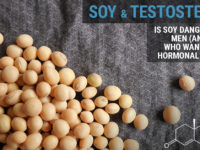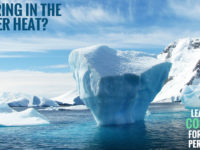It’s hard to believe the year is over! I began this blog in April, and began writing for it in earnest in May, and eight short months later here we are.
While it’s only a partial year, I know many of you joined me partway through and may not have seen or read all of the year’s top posts, so for my final post of 2015 I wanted to join in the tradition of writers and websites the world round and post the top 10 most read articles of Climbing Nutrition in the year 2015.
And also: Happy New Year! May your coming year bring you delicious food, amazing experiences, and terrific climbing.
#10: Is There Such as a “Good Fat” or “Bad Fat”?
Most of us have at least heard of “good fats” and “bad fats”, if we’re not familiar with the usual suspects themselves. But, in the present day, do we really need to distinguish between good and bad when it comes to fats, or is this just a relic of the past?
#9: How Do Nutrition Needs Differ Between Types of Climbing?
The sport of climbing encompasses a wide array of disciplines, from ultrashort, ultra-powerful boulders to long, multipitch climbs to mountaineering—and just as you need to train differently to excel in each discipline, you need to eat differently as well.
#8: 4 Things That Won’t Help Your Tendons and 4 Things That Might
There’s a ton of misinformation about tendon care on the web, and the things that most people think will help their tendons remain healthy or grow strong are probably worthless. The good news is that there are also things you may not have heard of that will benefit your tendons, and help you do the most to ward off injury!
#7: Creatine Supplement Guide
Not the first guide I ever published to Climbing Nutrition, but the first supplement I ever wrote—because creatine is a controversial supplement in the climbing world, and I needed something to convince clients that I wasn’t out of my mind for recommending it! Creatine remains controversial (due to the small amount of weight gain it causes), but also remains one of the most if not the most potent power-increasing supplement on the market.
#6: The Protein Series
The 3-part series on protein actually took up a few spaces on the top 10 list, but they really belong together. Far and away, I receive more questions about protein than any other topic (even after writing the guide), and I always recommend this series as the best starting point to understand how much protein a climber needs—and just as important, why.
#5: A Simple Nutrition Tip for Breaking Plateaus
We’ve all plateaued before, and it’s always frustrating. Sometimes you need to change your training, sometimes you need to up your training, and sometimes you need to feed your training.
#4: A Glimpse at My Diet
A quick anecdote: whenever I run into acquaintances at the grocery store, they always jokingly hide their baskets from me. In a non-serious way, they don’t want me to know what they’re eating! The reality is they needn’t ever worry, because I’m not going to judge them on their diet, least of all in a grocery store. You can judge my diet (for crag days) in this post here, though.
#3: Why Most Climbers Shouldn’t Focus on (Dietary) Fat
Most climbers I’ve met have a very fat-rich diet, no doubt because fat-rich diets are in vogue (especially amongst athletes). But in their quest to eat “healthy” amounts of fat, they often overdo it, eating more than they intend to.
#2: Remember Climbers: You Are Athletes
It’s easy to get hung up on the idea of a “perfect diet”, because it seems like healthy food is just healthy, right? The truth is more nuanced, and when it comes to climbers, the most important thing to remember is that you are athletes and that athletes have their own specific dietary needs! If you eat just a generic “healthy diet”, you might not end up eating a healthy diet for the amount you exercise!
#1: The Best Sources of Protein
Far and away the most viewed article of 2015, “The Best Sources of Protein” cuts to the heart of what most climbers want to know: what sources are ideal (or less ideal)? This is a comprehensive view not only of what good sources of protein are, but also why they’re good sources, and why that’s important.
———–
Thank you to all the readers who make this blog possible, and I’ll see you all in the new year!
Cheers,
Brian














